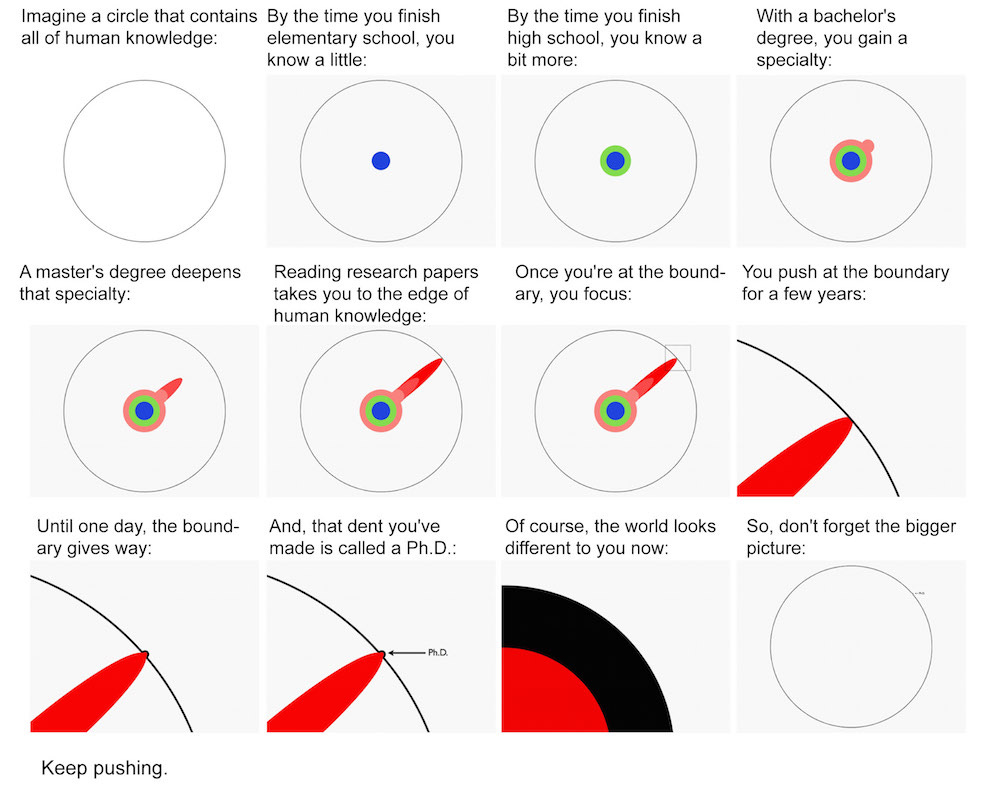I've recently been reflecting on how philosophy is fundamentally rooted in logic, precision, and consistency. These principles don't just enhance philosophical writing—they define what makes it good. This realization has sparked my interest in "meta-philosophy" and the question of what distinguishes good philosophy from bad. There's an inherent tension between advancing novel, creative ideas and maintaining logical rigor. It's easy to overextend oneself when trying to craft something unique or provocative.
What resonates most with me is the notion that philosophy moves slowly when it's at its best. Philosophy isn't a field where problems can be solved quickly or with clever shortcuts. Quality work demands patience, thoughtfulness, and precisely calibrated claims. A single paper might only achieve minimal progress; even one inch of intellectual advancement might require an entire book. This concept reminds me of a graphic I once saved that illustrates how knowledge expands concentrically as you reach the pinnacle in a field or “PhD”.
This idea of incrementally pushing boundaries applies to our personal knowledge as much as it does to formal academic pursuits. The sum of what I know remains largely stable, with only minor variations from week to week. New information and hypotheses constantly emerge, but my confidence in most of this information remains low. Only rarely—perhaps a few times yearly—do I encounter ideas that profoundly impact my worldview and become foundational to how I understand reality.
When I reflect on ideas I've encountered, what initially seemed novel often turns out to be either genuinely valuable or simply a variation of deeper beliefs I already hold. Truly "good" new ideas should, at minimum, disprove one premise in my existing chain of reasoning and, at their best, break the entire chain to reveal entirely new idea spaces to explore. This understanding has increased my interest in information optimization and avoiding what might be called "Information Obesity"—where algorithms and the internet's vastness promote distracting, low-value content. I've found that engaging with original source material (classic texts, research papers, etc.) provides intellectual nourishment comparable to whole foods in a dietary context. I believe that developing stronger skills in philosophy and mathematics will help me master the fundamental languages of reality: words and numbers. There are a lot of core themes in this piece I plan to spin into their own pieces (information diets, knowledge graphs, etc.)




